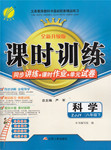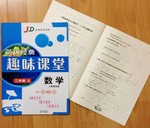题目内容
Australia -a huge island continent that lies to the south of Asia.Australia-more than two hundred years old, a nation that is still growing.
Its big cities lie on the southeast coast, this is where most Australians live.Australians prefer to own their own houses, though some live in apartments.Australians are a suburban(郊区的) people.The suburbs surround the cities for many miles, and so efficient transport is of great importance.As the economy grows, so do its industries- a higher level of production, a wider range of products.
The Australian works hard, but he likes his leisure.The climate makes outdoor activities the most popular.
Canberra, the capital of Australia, is a planned modern city located inland.Australia is governed by a parliamentary democracy(议会民主).The representatives of other countries have their embassies here.Australia wants to strengthen relations with her neighbors.
Australia is a strange land, a land of vast expanses- fertile valleys, snow fields and deserts- also a land with unique animal, many that can not be found on any other continent in the world today.
Much of the continent is dry, but man has utilized the land, made it productive, with its tools, with its technology.This is the driest continent of all, and water is a precious possession, more precious than all other natural resources.Large dams are built to collect the water, there to irrigate the fields of pastures(牧场) and crops.
But Australia is changing.The land of wool and wheat is now a land of large-scale industry and mining.The costs of developing the new mineral discoveries are enormous, but the rewards are great too.
Australia — a young and developing nation.Australia — a nation that wants to communicate with its neighbors.
1.Australia is an island located ______ of Asia and its big cities lie ____ of the coast.
A.to the south; on the southeast B.to the north; on the southwest
C.to the east; on the northeast D.to the east; on the southwest
2.We can infer from the passage that the Australian likes outdoor activities for the _____ climate.
A.dull and wet B.fine and shiny
C.gloomy and rainy D.wet and cold
3.____ is the most precious source in Australia.
A.Mineral resource B.Animal
C.Desert D.Water
4.Which of the following statements about Australia is wrong?
A.Australians are a suburban people
B.Australia is governed by a parliamentary democracy.
C.Australia prefers to live in the downtown of big cities.
D.Wool and wheat used to be the main products of Australia.
ABDC

 课时训练江苏人民出版社系列答案
课时训练江苏人民出版社系列答案 黄冈经典趣味课堂系列答案
黄冈经典趣味课堂系列答案Come and see the Indian elephants and the new tigers from America. The bears are waiting to meet you, and the monkeys from China are waiting to throw things at you. The lovely dogs from Australia are waiting to laugh at you, and the giraffes from Zambia are waiting to look down on You.
Tickets Grown-ups:$2.00
Children:Over 12 $1.00 Under 12 Free
Opening time:9:00 a.m.— 4:00 p.m. Except Friday 10:00 a.m. — 3 :00 p.m.
Keep the zoo clean!Do not touch,give food or go near the animals.
1.How many kinds of animals are talked about in the passage?
|
A.Four |
B.Five |
C.Six |
D.Seven |
2.Now Mr. Smith is in the zoo with his two sons, one aged 14 and the other 10, how much are the tickets together?
|
A.$4.00 |
B.$2.00 |
C.$3.00 |
D.$1.00 |
3.Which of the following is the visiting time?
|
A.8:30 a.m. Monday |
B.9:30 a.m. Friday |
C.3:00 p.m. Sunday |
D.5:00 p.m. Tuesday |
4.From the passage we can guess the animal “giraffe” must be very _______.
|
A.fat |
B.long |
C.strong |
D.tall |
5.Which of the following can we do in the zoo?
|
A.To give some food to the dogs. |
B.To touch the monkey on the head. |
|
C.To throw things everywhere. |
D.To take a few nice photos. |
On April 10, 1815, Mount Tambora in Indonesia erupted with great force. Fifty cubic kilometers of magma (岩浆) flew from its peak (山顶) and a blanket of ash as thick as one centimeter fell over more than 500,000 square kilometers of Indonesia and the Java Sea. The eruption destroyed Tambora’s peak and formed a hole six by seven kilometers wide. The eruption and resulting tsunamis killed 10,000 people. The agricultural loss and disease brought about by the thick ash caused the deaths of 82,000 more.
Indonesia was rocked again in 1883. On August 26, a small volcano on an uninhabited island between Sumatra and Java, erupted. The eruption produced an ash cloud 80 kilometers high and was heard in Australia—4,800 kilometers away. The eruption also caused a tsunami, which pounded (击打) the shores of Java and Sumatra—killing 36,000 people.
In 1902, St. Pierre was a thriving (兴盛的) community and the largest town on the French colony of Martinique in the Caribbean Sea. Mont Pelee cast a shadow over the town from where it stood, eight kilometers to the north. The townspeople were used to the light continuous sounds of the mountain, but in May, 1902 Pelee started to get really unstable. Clouds of steam and ash poured from the volcano and on May 8, Pelee erupted. Superheated gas and steaming volcanic ash flew out, pouring down the mountain at high speed. Within seconds, the deadly gas cloud had destroyed the town of St. Pierre and incinerated everyone in it — except one prisoner in a basement cell. It was the worst volcano disaster of the 20th century.
1.How many people died because of the eruption on April 10, 1815 ?
|
A.About 10,000. |
B.More than 82,000. |
|
C.About 36,000. |
D.More than 92,000. |
2.The underlined word “incinerated” in the last paragraph can be replaced by “_____”.
|
A.brought up |
B.burned up |
C.woke up |
D.shut up |
3.Only one prisoner survived the volcano eruption of Mont Pelee on May 8 because _____.
|
A.he was on a ship then |
|
B.he was kept underground |
|
C.he stayed in the water |
|
D.he was hidden in a well |
4. We can know from this article that _____.
|
A.no measures can be taken to protect people from a volcano eruption |
|
B.volcanoes usually caused a series of earthquakes |
|
C.sometimes a volcano can completely destroy a city |
|
D.volcanoes are much more violent than the earthquakes |